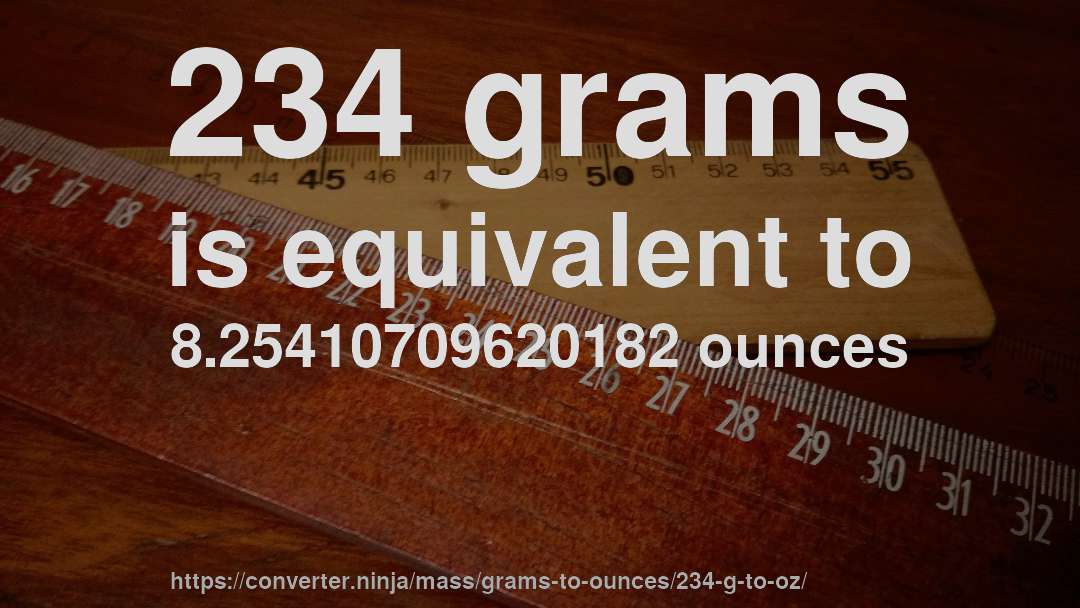
234 grams is equivalent to 8.25410709620182 ounces.
We know (by definition) that: 1 g ≈ 0.035273962 oz
We can set up a proportion to solve for the number of ounces.
1 g 234 g ≈ 0.035273962 oz x ozNow, we cross multiply to solve for our unknown x:
x oz ≈ 234 g 1 g * 0.035273962 oz → x oz ≈ 8.254107108 ozConclusion: 234 g ≈ 8.254107108 oz
The inverse of the conversion factor is that 1 ounce is equal to 0.121151808226496 times 234 grams.
It can also be expressed as: 234 grams is equal to 1 0.121151808226496 ounces.
Approximation
An approximate numerical result would be: two hundred and thirty-four grams is about eight point two five ounces, or alternatively, a ounce is about zero point one two times two hundred and thirty-four grams.
Units involved
This is how the units in this conversion are defined:
Grams
The gram is a metric system unit of mass. Originally defined as the absolute weight of a volume of pure water equal to the cube of the hundredth part of a metre, and at the temperature of melting ice. However, a gram is now defined as one one-thousandth of the SI base unit, the kilogram, or 1×10−3 kg, which itself is now defined, not in terms of grams, but as being equal to the mass of a physical prototype of a specific alloy kept locked up and preserved by the International Bureau of Weights and Measures. This is in the tradition by which many customary local reference standard stones, lengths (objects) and weights were required to periodically undergo comparison with the official nations standard referents, usually with a particular periodicity defined by the countries statuate laws.
Ounces
The ounce (abbreviated oz) is a unit of mass used in most British derived customary systems of measurement. It is most pervasive in the retail sale of groceries in the United States, but is also used in many other matters of domestic and international trade between imperial or customary measurement driven countries. Similar customary uses include recipes in cookbooks and sales of bulk dry goods. Whilst various definitions have been used throughout history, two remain in common use, the avoirdupois ounce equal to approximately 28.3 grams and the troy ounce of about 31.1 grams. The avoirdupois ounce is widely used as part of the United States customary and British imperial systems, but the troy ounce is now only commonly used for the mass of precious metals such as gold, silver, platinum, palladium, rhodium, etc..
[1] The precision is 15 significant digits (fourteen digits to the right of the decimal point).
Results may contain small errors due to the use of floating point arithmetic.ncG1vNJzZmibn6PDpr7Tnqlnppmjt6J7zJqqrGeXp66uv4ytpmanpaOwpr%2BOa2ptZZdiwbB5zrNm